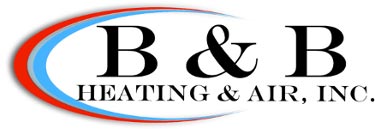Question and Answers
Q: How often should I have my HVAC system serviced?
A: We recommend that you have your system checked twice a year once in the spring and once in the fall. The spring is the best time of year to check your air conditioning to make sure it is running properly for the hot summer ahead. The fall is also the best time of year to check your heating system to make sure it is ready for winter.
Q. How often should I change my filters?
A: There is nothing more important than changing your filters regularly. Your air filter should be changed every 30 to 90 days. If the HVAC system runs frequently, you have shedding pets, live in an area with poor air quality (dusty, dry) then you will need to change it more frequently.
An air filter that goes unchanged becomes clogged with dirt. The dirt then restricts the airflow to your heating and cooling system. Therefor your system gets less air (because of your clogged air filter) so It will return less air which means It will take much longer for your home to reach your desired temperature. Also, your heating and cooling system will be running more and for longer, resulting in higher heating and cooling bills.
Not only that, but the increased stress on your furnace, air conditioner or heat pump can shorten the lifespan of your equipment and cause breakdowns.
Q: What is the life expectancy of my HVAC system?
A: The average life expectancy of your HVAC system depends on many factors. How often you run your system, the system’s age, its make and model, and whether or not it was serviced regularly over the course of its life can all play a significant role in how long your system will last you. You can expect your furnace and/or air conditioner to last approximately 15 years. Heat pumps can last 10 to 20 years, though 12 is average.
Q. What kind of Freon does a home air conditioner use?
A. Most home systems used to use R-22 refrigerant. The EPA mandated in 2010 that production of new systems with R22 was to cease due to its effects on ozone depletion. While R22 was still available after 2010 for purchase by HVAC companies for service production has slowly been phased out and as of 2020 the EPA has stopped all production of R-22. In its place today’s modern air conditioning systems use PURON, known as 410A.
Q. What size system do I need?
A system that is too small cannot deliver adequate heating or cooling in extreme weather and a system that is too large will not only cost more to operate but will not provide proper temperature and humidity control. The general rule of thumb is that one ton of AC capacity will cool approximately 600 square feet. So, if your home is 1,500 square feet, a two and half ton unit would be best. Keep in mind, there are other factors to consider, such as the layout of your home, insulation, and windows. So always consult with a HVAC professional.
Q. At what temperature should I set my thermostat?
A. Keep in mind most individual comfort levels will differ but average cooling settings are around 75 degrees and 68 degrees for heating. You should always set your thermostat to the highest possible setting that is comfortable for you in the summer, and the lowest comfortable setting in the winter. Setting your thermostat in this way will maximize your energy savings. On average, every 1 degree of temperature change is equal to about 1% energy savings
Q. What does SEER mean?
All air conditioning units have a SEER rating. That stands for Seasonal Energy Efficiency Ratio. This number represents the ratio of the cooling output over the season divided by the energy consumed in watt hours. It is a measure of air conditioner and heat pump cooling efficiency. The measurement is taken over the course of a typical cooling season. The higher the number, the more efficient the unit.
The minimum standard for a SEER rating is 14. A maximum rating can go as high as 43 SEER. Most newer air conditioning units will fall somewhere in this range. Older units may only have a SEER rating around 10. Which are not nearly as energy efficient.
When replacing an old AC unit, you will want to choose one that has a SEER rating of 14 or higher. That upgrade will significantly reduce the cooling costs for the homeowner. Today’s air conditioning units are 20-40% more efficient than models that are 10 years old.
